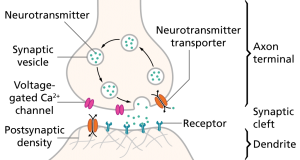With its increasing functionality and large selection, the smartphone has masked itself as a necessity in many peoples’ lives, including mine. Some smartphones are designed to be even better than most cameras while others are a symbol of status.
Regardless, almost every smartphone-owning person fits in a niche and certain smartphones, such as apple iPhones, have created a group identity. I make sure to have my smartphone on me almost all the time. I also have the urge to check my phone frequently, even for trivial things such as my friends’ Facebook updates. However, I am not the only one attached to my smartphone. A quick glance across a lecture hall, and I can easily spot a handful of students texting or taking “selfies” to upload on social media sites.
Not only did smartphones improve multi-tasking and introduce easier ways for people to stay connected, but it also created a new fear: nomophobia (no mobile phobia), the fear of being away from a mobile device. While this sounds silly, the majority of Canadians are actually “nomophobes”. A report by Rogers found that 65% of Canadians feel naked without their smartphones, 83% use smartphones in the washroom and 44% believe that in the near future, babies will start using technology before they walk and talk. In addition, Rogers found that smartphone owners tend to keep their devices close-by about 70% of the time which lends support for the increasing dependence we have for smartphones. Unfortunately, while smartphones can enhance our exercising experience and keep track of our health, many of us prefer to spend time with our eyes glued to the screen instead of participating in outdoor activities.
Many people notice this trend of smartphones (and other mobile devices) intertwining with our daily activities. For example, Dale Archer, M.D. talks about smartphone addiction: the anxiety we feel when we can’t find our phone and the ways we’ve incorporated smartphones into intimate parts of our lives. Huffington Post also draws attention to this addiction with a short video titled “Confessions of a Nomophobe“.
While some people hesitate to take nomophobia seriously, others find this issue concerning. Researchers Caglar Yildirim and Ana-Paula Correia designed a questionnaire to draw awareness to and measure nomophobia. Like other researchers, Yildirim and Correia agree that nomophobia should be listed in the DSM-5, the manual of classified mental disorders. Neelima Sharma and colleagues’ research shows the effects of nomophobia on smartphone users’ mental health and the various negative side effects and outcomes associated, including headaches and panic attacks. Other physical stresses include the addition of pressure to the spine because of poor posture from prolonged smartphone use.
While smartphones have provided us entertainment and functionality in the palm of our hands, we all should understand, too much of a good thing is not always great.
Iris Liu







